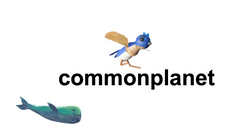Shrimp may seem like small and insignificant creatures, but they play a vital role in our world's oceans. These tiny crustaceans are a critical part of the marine food chain, serving as a food source for many larger animals such as fish, whales, and seabirds. Without shrimp, the delicate balance of the ocean's ecosystem would be thrown off, causing a ripple effect that could have devastating consequences for marine life and the planet as a whole. Not only have animals enjoyed eating shrimp, but so have humans. The popularity of shrimp has grown in the last decade and is now America’s most popular seafood.
But shrimp are not just important for their role as a food source. They also play a crucial role in keeping our oceans clean. Shrimp are natural scavengers and cleaners, consuming dead plant and animal matter on the ocean floor. By doing so, they help to break down and recycle nutrients that would otherwise accumulate and cause harmful algal blooms, which can lead to oxygen depletion and create dead zones in the ocean. In essence, shrimp are the unsung heroes of ocean conservation.
However, despite their importance, shrimp populations are under threat from overfishing and habitat destruction. It seems like even the smallest of creatures are not immune from extinction. Therefore, it is essential that we take steps to protect and conserve these vital creatures, such as supporting sustainable fishing practices and protecting important shrimp habitats. By doing so, we can ensure that shrimp continue to play their vital role in maintaining the health of our oceans and continue to be a delicious commodity for future generations to enjoy.
Daniel Kim (May 2023)

